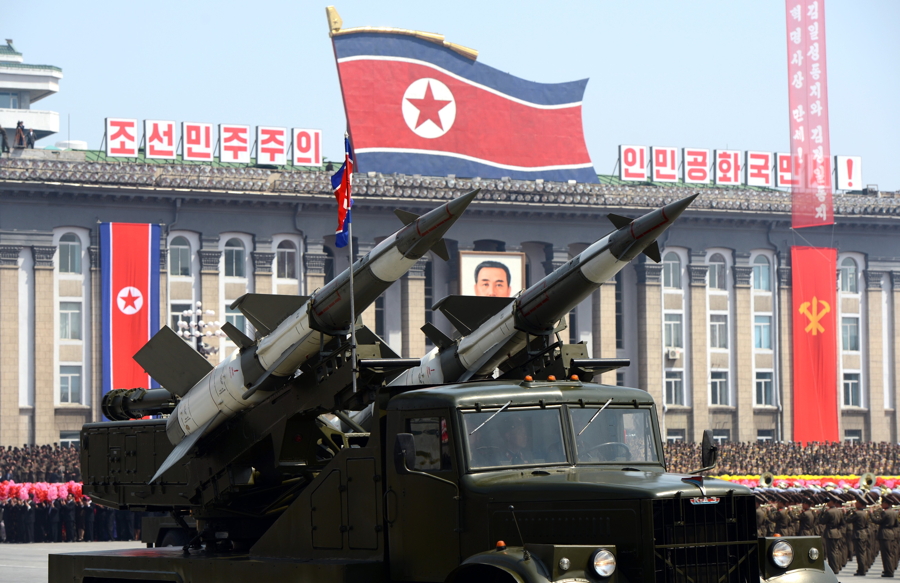Top Israeli, American Experts Concerned About North Korean Nuclear Precedent For Iran

Several top Israeli and American experts on nuclear proliferation and Iran say the failure to successfully deal with North Korea sets a precedent for a similar result with the Islamic Republic.
“The aspect of the North Korean case that needs to be taken into account with regard to Iran is the fact that despite all the differences between the two states, they share a determination to acquire nuclear weapons in violation of the Non-Proliferation Treaty (NPT) commitment they took upon themselves to remain non-nuclear,” said Emily Landau, director of the Arms Control and Regional Security Program at Tel Aviv University’s Institute for National Security Studies.
Although North Korea exited the NPT in 2003, the international community did not view that move as giving the rogue state carte blanche to become nuclear, she noted.
“The international community faces a similar challenge in getting Iran and North Korea to back down and return to the fold of the NPT,” Landau told JNS.org, “and in both cases the strategy chosen for this was negotiations and diplomacy.”
The North Korean case entails 25 years of failed negotiations. The country has been a nuclear state for at least a decade and now has demonstrated the ability to reach the U.S. with an intercontinental ballistic missile.
“This raises a question regarding the outcome of negotiations with Iran as well,” said Landau. “In 1994, there were celebrations of the deal with North Korea that were viewed as ending the nuclear crisis, but it continued to move forward.”
The Obama administration had celebrated the 2015 nuclear deal between Iran and world powers with even greater fanfare, but Landau believes “there is no indication of an Iranian strategic U-turn in the nuclear realm, and the deal itself is severely flawed.”
“If a short-term delay causes the international community to be lulled into a false sense that the deal ‘is working,’ as we are hearing lately from deal supporters, it is likely to wake up with a nuclear Iran that will be as firmly entrenched as North Korea,” she said, noting Iran “has been emboldened” in the Middle East since the nuclear deal was reached.
Landau also expressed concern about military collaboration between North Korea and Iran in both the missile and nuclear spheres. This activity needs to be closely monitored by intelligence agencies, she said, explaining that North Korea “will sell anything to anyone for hard cash, and Iran can pay.”
Michael Rubin—a scholar at the American Enterprise Institute and a former Pentagon official, whose major research areas include the Middle East, Iran and diplomacy—said the current dilemmas with Iran and North Korea relate to how both nuclear deals were negotiated.
“American diplomats in both cases were so afraid talks would fail that they would agree to a bad deal, and ignore backsliding and cheating just to keep hope alive,” Rubin told JNS.org.
“There was also hope in both cases that the regime was at the turning point,” he added. “Those negotiating with North Korea were convinced that the regime wouldn’t live out the deal anyway, and those negotiating with Iran fooled themselves into thinking reformists mattered.”
While the Iranian and North Korean ideologies may be different, their hatred of the West brings them together, according to Rubin.
“Add into the mix that Iran wants technology and North Korea wants cash, and it’s a match made in hell—one could even say it’s an axis of evil,” he said.
The Middle East is watching North Korea
Col. (res.) Dr. Shaul Shay, director of research for the Institute for Policy and Strategy at Israel’s IDC Herzliya research college, said Middle Eastern states such as Iran are watching how America deals with the North Korean crisis.
“North Korea had supported Syria to build the nuclear reactor in Deir ez-Zor and Tehran used North Korean knowledge to build its nuclear program,” Shay told JNS.org.
Shay said failure to thwart North Korea “may be a prelude to a more challenging threat from Tehran.” The Americans should use a combination of military and political threats while recruiting China and Russia to defuse the tensions and prevent North Korea from going nuclear, he advised.
“So far, Iran is responding to the U.S. sanctions with further provocations,” he said. “Iran’s parliament voted Sunday to allocate $520 million to develop its missile program to fight Washington’s ‘adventurism’ and sanctions, and to boost the foreign operations of the country’s Revolutionary Guard.”
Ali Alfoneh, an Iran analyst and non-resident senior fellow at the Atlantic Council, told JNS.org that “as long as Tehran complies with the JCPOA (the nuclear agreement’s formal name), as it apparently is doing, as the U.S. government recognized on July 18, I see no similarities” between the Iranian and North Korean issues.
If Tehran fails to comply with the nuclear deal, Alfoneh said, then resemblances with North Korea may emerge.
“The campaign against North Korea,” said Shay, “may define the American position against Iran.”
http://www.israeltoday.co.il/NewsItem/tabid/178/nid/32240/Default.aspx
